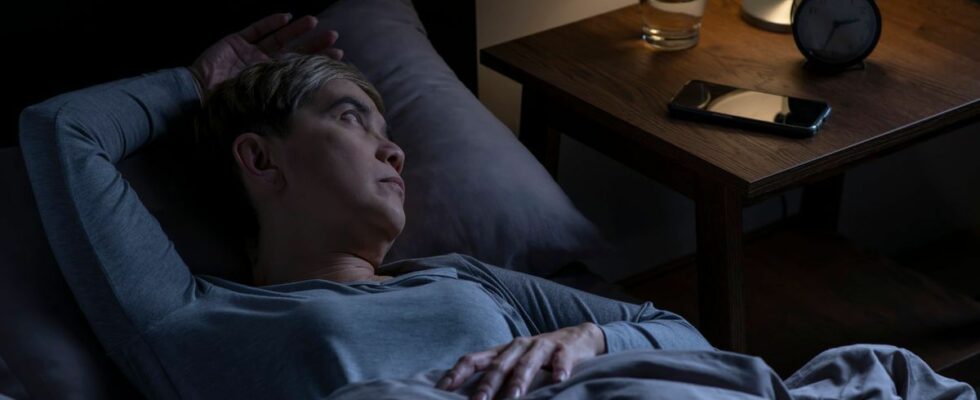Published on
updated on
Reading 2 min.
Sleeping is not just about regaining your strength. This activity to which we devote a third of our existence is crucial for many biological mechanisms. When sleep is disrupted, the repercussions on health are direct. They would be particularly heavy on the brain, if we are to believe an American study published in the journal Neurology.
A research team from the University of San Francisco has highlighted the existence of a troubling link, starting in midlife, between sleep quality and brain atrophy, a phenomenon often associated with dementia. She arrived at this observation after following 600 adults, on average aged around forty, for several years. These volunteers were part of the CARDIA (“Coronary Artery Risk Development in Young Adults”) study, which examines the development and risk factors for cardiovascular disease.
For the needs of their studyresearchers asked participants about various aspects of their sleep. They also determined the brain age of each of them, by analyzing their brain scans using machine learning algorithms. The results show that, even when taking into account various factors such as age, lifestyle or general health, adults with sleep disorders had accelerated brain aging.
Individuals complaining of having moderate sleep problems were 1.6 years older cerebrally than those who said they slept well. This phenomenon is even more amplified for adults who have several sleep pathologies. In their case, the gap increased to 2.6 years.
Scientists found that accelerated brain aging was particularly linked to having difficulty falling asleep and waking up early, with the feeling of not having recovered sufficiently. Surprisingly, the sleep duration does not appear to significantly impact this, although previous studies claim that shortened sleep leads to an increased risk of cognitive decline and dementia. “[Mais] we cannot say with certainty that there is no association between the two“, declares Clémence Cavaillès, co-author of the study, in a press release.
These findings show how important it is to sleep well to be healthy. “Our study shows that poor quality sleep could be a lever for early intervention to prevent possible cognitive decline“, estimates Dr Kristine Yaffe, lead author of the study. And the stakes are high: the frequency of sleep disorders has continued to increase in recent decades. The almost permanent presence of light, stress and a sedentary lifestyle are among the main factors explaining the prevalence of these disorders in our modern societies.

